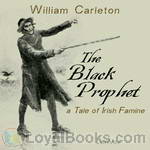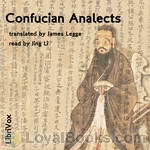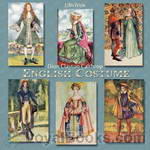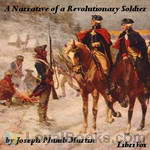|
Books Should Be Free Loyal Books Free Public Domain Audiobooks & eBook Downloads |
|
|
Books Should Be Free Loyal Books Free Public Domain Audiobooks & eBook Downloads |
|
History Books |
|---|
|
Book type:
Sort by:
View by:
|
By: Agnes C. Laut (1871-1936) | |
|---|---|
 Vikings of the Pacific The Adventures of the Explorers who Came from the West, Eastward
Vikings of the Pacific The Adventures of the Explorers who Came from the West, Eastward
| |
 Chronicles of Canada Volume 23 - The Cariboo Trail: A Chronicle of the Gold-fields of British Columbia
Chronicles of Canada Volume 23 - The Cariboo Trail: A Chronicle of the Gold-fields of British Columbia
Between the California and Yukon/Klondike gold rushes was the Cariboo Gold Rush in what would become northern British Columbia. The first discovery was made in 1859, but the rush didn't get underway in earnest until 1861. This short work documents the story of this lesser-known era and how it directly affected the development of British Columbia. | |
 The Canadian Commonwealth
The Canadian Commonwealth
| |
By: Allen L. Churchill and Francis J. Reynolds (1867-1937) | |
|---|---|
 World's War Events, Vol. I
World's War Events, Vol. I
| |
By: John Charles Van Dyke | |
|---|---|
 A Text-Book of the History of Painting
A Text-Book of the History of Painting
A TEXT-BOOK OF THE HISTORY OF PAINTINGBY JOHN C. VAN DYKE, L.H.D.PREFACE.The object of this series of text-books is to provide concise teachable histories of art for class-room use in schools and colleges. The limited time given to the study of art in the average educational institution has not only dictated the condensed style of the volumes, but has limited their scope of matter to the general features of art history. Archaeological discussions on special subjects and aesthetic theories have been avoided... | |
By: William Tecumseh Sherman (1820-1891) | |
|---|---|
 Sherman’s Recollections of California, 1846-1848, 1855-1857, from his Memoirs
Sherman’s Recollections of California, 1846-1848, 1855-1857, from his Memoirs
This librivox recording comprises three chapters from American Civil War General William Tecumseh Sherman’s Memoirs. The chapters deal with a posting to California in his pre-Civil War military career in the years 1846-1848. While many of his colleagues saw action in the Mexican-American War, Sherman performed administrative duties in the captured territory of California. Along with fellow Lieutenants Henry Halleck and Edward Ord, Sherman embarked from New York on the 198-day journey around Cape Horn aboard the converted sloop USS Lexington... | |
By: Osborn H. Oldroyd (1842-1930) | |
|---|---|
 The Good Old Songs We Used to Sing, '61 to '65
The Good Old Songs We Used to Sing, '61 to '65
| |
 The Poets' Lincoln Tributes in Verse to the Martyred President
The Poets' Lincoln Tributes in Verse to the Martyred President
| |
By: Walter Lippmann (1889-1974) | |
|---|---|
 Preface to Politics
Preface to Politics
This is the first book in the bibliography of Walter Lippmann, written three years after emerging from Harvard where he studied under the pragmatists Santayana and James. Although the work is a century old, the reader of today may still find in it, with its focus on practical human needs, a refreshing view towards the fundamental purpose (and persistent flaws) of politics, and indeed government itself, just as relevant and meaningful today as when it was written. | |
By: Rex Ellingwood Beach (1877-1949) | |
|---|---|
 Heart of the Sunset
Heart of the Sunset
| |
By: Rex Beach (1877-1949) | |
|---|---|
 Flowing Gold
Flowing Gold
Unfairly given a dishonorable discharge from the army, Calvin Gray goes to Dallas, where he manages to win the trust of a jeweler and is able to sell a number of diamonds to the newly oil rich Briskows. He makes friends with the family and helps them adjust to their newly found riches. The Briskows, in turn, help him prove false the charges that caused his dismissal from the army. | |
By: Sidney Lee (1859-1926) | |
|---|---|
 Shakespeare and the Modern Stage with Other Essays
Shakespeare and the Modern Stage with Other Essays
| |
By: Leonard W. King (1869-1919) | |
|---|---|
 History of Egypt, Chaldea, Syria, Babylonia, and Assyria in the Light of Recent Discovery
History of Egypt, Chaldea, Syria, Babylonia, and Assyria in the Light of Recent Discovery
| |
By: Edward V. Lucas (1868-1938) | |
|---|---|
 A Wanderer in Venice
A Wanderer in Venice
| |
 A Wanderer in Holland
A Wanderer in Holland
| |
 A Wanderer in Florence
A Wanderer in Florence
| |
By: Henry W. (Henry William) Fischer (1856-1932) | |
|---|---|
 Secret Memoirs: The Story of Louise, Crown Princess
Secret Memoirs: The Story of Louise, Crown Princess
| |
By: William Carleton (1794-1869) | |
|---|---|
 The Black Prophet - A Tale of Irish Famine
The Black Prophet - A Tale of Irish Famine
A story about the Irish, just before the onset of the famine of 1847, with all the color and dialogue of a man who lived it. | |
 One Way Out A Middle-class New-Englander Emigrates to America
One Way Out A Middle-class New-Englander Emigrates to America
| |
By: Confucius (551 BCE-479 BCE) | |
|---|---|
 Confucian Analects
Confucian Analects
The Analects, or Lunyu (simplified Chinese: 论语; traditional Chinese: 論語; pinyin: Lún Yǔ; literally "Classified/Ordered Sayings"), also known as the Analects of Confucius, are considered a record of the words and acts of the central Chinese thinker and philosopher Confucius and his disciples, as well as the discussions they held. Written during the Spring and Autumn Period through the Warring States Period (ca. 475 BC - 221 BC), the Analects is the representative work of Confucianism and continues to have a substantial influence on Chinese and East Asian thought and values today... | |
By: James Legge (1815-1897) | |
|---|---|
 The Chinese Classics: with a translation, critical and exegetical notes, prolegomena and copious indexes (Shih ching. English) — Volume 1
The Chinese Classics: with a translation, critical and exegetical notes, prolegomena and copious indexes (Shih ching. English) — Volume 1
| |
By: Isabella L. Bird (1831-1904) | |
|---|---|
 Unbeaten Tracks in Japan
Unbeaten Tracks in Japan
Isabella Lucy Bird was a 19th century English traveller, writer, and natural historian. She was a sickly child, however, while she was travelling she was almost always healthy. Her first trip, in 1854, took her to America, visiting relatives. Her first book, The Englishwoman in America was published anonymously two years later. Unbeaten Tracks in Japan is compiled of the letters she sent to her sister during her 7 months sojourn in Japan in 1878. Her travels there took her from Edo (now called Tokyo) through the interior - where she was often the first foreigner the locals had met - to Niigata, and from there to Aomori... | |
 Among the Tibetans
Among the Tibetans
Isabella L. Bird was an English traveller, writer and natural historian. She was travelling in the Far East alone at a time when such endeavours were risky and dangerous even for men and large, better equipped parties. In "Among the Tibetans", Bird describes her tour through Tibet with her usual keen eye: From descriptions of the landscape and flora to the manners, customs and religion of the local people we get a fascinating account of a world long past. | |
 The Golden Chersonese and the Way Thither
The Golden Chersonese and the Way Thither
| |
By: Rupert Hughes (1872-1956) | |
|---|---|
 Contemporary American Composers Being a Study of the Music of This Country
Contemporary American Composers Being a Study of the Music of This Country
| |
By: Dion Clayton Calthrop (1878-1937) | |
|---|---|
 English Costume
English Costume
The world, if we choose to see it so, is a complicated picture of people dressing and undressing. The history of the world is composed of the chat of a little band of tailors seated cross-legged on their boards; they gossip across the centuries, feeling, as they should, very busy and important. As you will see, I have devoted myself entirely to civil costume—that is, the clothes a man or a woman would wear from choice, and not by reason of an appointment to some ecclesiastical post, or to a military calling, or to the Bar, or the Bench. Such clothes are but symbols of their trades and professions, and have been dealt with by persons who specialize in those professions. | |
By: Charles Alexander Eastman (1858-1939) | |
|---|---|
 Indian Child Life
Indian Child Life
The author was raised as an American Indian and describes what it was like to be an Indian boy (the first 7 chapters) and an Indian Girl (the last 7 chapters). This is very different from the slanted way the white man tried to picture them as 'savages' and 'brutes.'Quote: Dear Children:—You will like to know that the man who wrote these true stories is himself one of the people he describes so pleasantly and so lovingly for you. He hopes that when you have finished this book, the Indians will seem to you very real and very friendly... | |
By: Charles Alexander Eastman (1858-1939) | |
|---|---|
 Wigwam Evenings Sioux Folk Tales Retold
Wigwam Evenings Sioux Folk Tales Retold
| |
 Indian To-day
Indian To-day
Based in part upon the author's own observations and personal knowledge, it was the aim of the book to set forth the status and outlook of the North American Indian. He addressed issues such as Indian schools, health, government policy and agencies, and citizenship in this book. In connection with his writings, Eastman was in steady demand as a lecturer and public speaker with the purpose of interpreting his race to the present age. | |
By: Joseph Plumb Martin (1760-1850) | |
|---|---|
 A Narrative of a Revolutionary Soldier
A Narrative of a Revolutionary Soldier
Joining the Continental Army as a teenager, Joseph Plumb Martin spent the next eight years fighting in the Revolutionary War as an enlisted man. His memoirs tell in detail his experiences during that time...the bitter cold, hunger, loss of life, long marches, and fear of battle. He also includes tales of fishing, hunting, and other activities...including encounters with a "saucy miss". His narrative reveals much about American life at the time and is one of the fullest and best accounts of the Revolutionary War, presented from a private's point of view.The book has been later republished under the names Private Yankee Doodle and Memoir of a Revolutionary Soldier. | |
By: Vernon Lee (1856-1935) | |
|---|---|
 The Spirit of Rome
The Spirit of Rome
| |
 The Countess of Albany
The Countess of Albany
| |
By: Gustave Le Bon (1841-1931) | |
|---|---|
 The Psychology of Revolution
The Psychology of Revolution
| |
By: Marmaduke William Pickthall (1875-1936) | |
|---|---|
 Oriental Encounters Palestine and Syria, 1894-6
Oriental Encounters Palestine and Syria, 1894-6
| |
By: Gertrude Burford Rawlings | |
|---|---|
 The Story of Books
The Story of Books
Rawlings follows the development of printing from the origins of writing to modern printing. Some of the earliest records are ancient Egyptian, Greek and Roman recordings on papyrus and wax tablets. However, Rawlings acknowledges the sparse nature of this first fragile evidence, and limits speculation.Later, libraries of religious books grew in Europe, where monks copied individual books in monasteries. The "block printing" technique began with illustrations carved in wood blocks, while the text needed to be written by hand... | |
By: Frederick Jackson Turner (1861-1932) | |
|---|---|
 Rise of the New West, 1819-1829
Rise of the New West, 1819-1829
| |
 The Character and Influence of the Indian Trade in Wisconsin
The Character and Influence of the Indian Trade in Wisconsin
| |
By: Wayne Whipple (1856-1942) | |
|---|---|
 Story of Young Abraham Lincoln
Story of Young Abraham Lincoln
This is a careful and fascinating collection of interviews with people who knew Lincoln as a boy and young man. A glimpse into the type of person he was from the very beginning. "All the world loves a lover"—and Abraham Lincoln loved everybody. With all his brain and brawn, his real greatness was in his heart. He has been called "the Great-Heart of the White House," and there is little doubt that more people have heard about him than there are who have read of the original "Great-Heart" in "The Pilgrim's Progress... | |
By: Charles Reade (1814-1884) | |
|---|---|
 White Lies
White Lies
| |